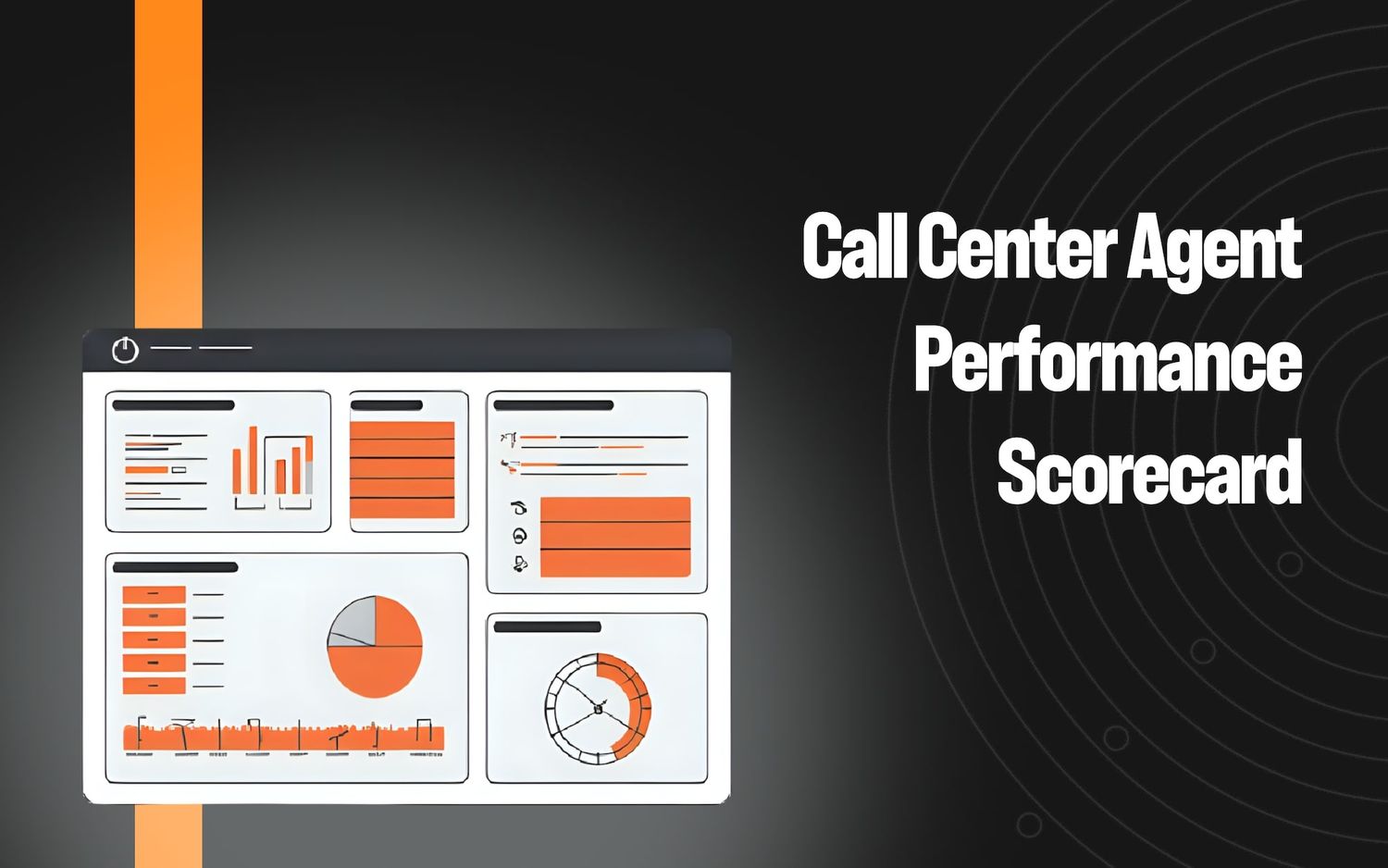5 Best Automated Quality Management Software in 2025

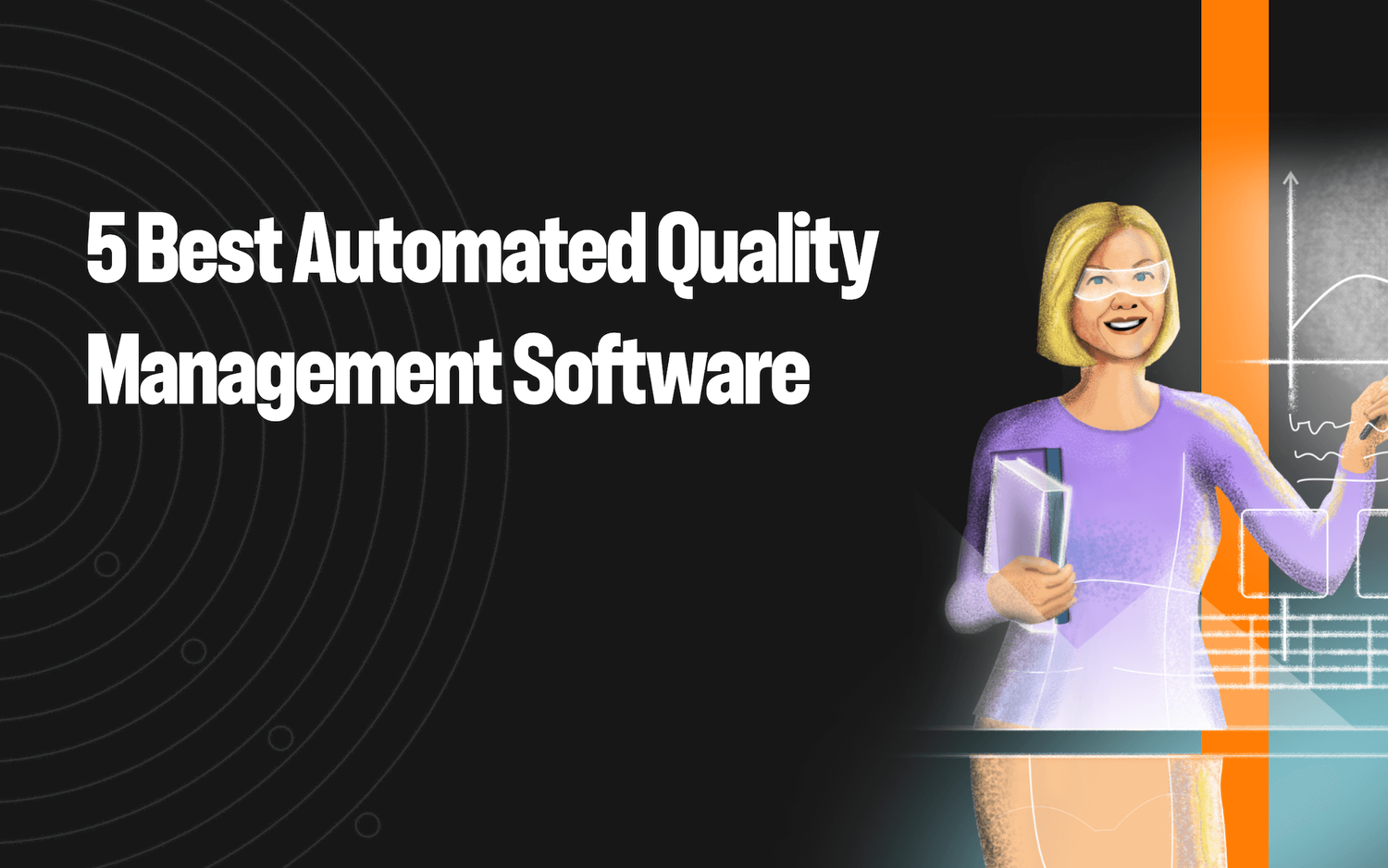
Automated Quality Management (AQM) is designed to make tasks such as scoring and summarization faster, more accurate, and more thorough.
Manual Quality Assurance (QA) processes suffer from the natural limitations of human evaluators reviewing customer interactions one by one.
Most customer service departments employ one QA staff member for every 50 to 100 reps, which means only about 1%–2% of total customer interactions ever get reviewed.
This makes it hard to give feedback to agents or spot issues when the vast majority of their interactions haven’t been evaluated. In addition, it makes it difficult to identify larger patterns in customer complaints and understand which offers will resonate with customers.
AQM software aims to solve these limitations with manual QA by analyzing 100% of customer interactions. This helps QA staff better identify patterns both at the individual agent level and department-wide. The software boosts your ability to find trends and improve things by going from evaluating barely anything to basically everything.
In this article, we describe what AQM software is, its components, and its advantages. We also provide five examples of different AQM solutions, starting with our own product, Level AI.
Best Automated Quality Management Software
- Level AI: Software that empowers you to achieve high-value quality management.
- Verint: Customer analytics solution for analyzing customer interactions.
- Observe.AI: Provides visibility and awareness into customer conversations.
- Zendesk: Customer service and support software.
- Enthu.AI: Sales coaching and quality management software.
What’s AQM Software and How Does It Work?
In contact centers, AQM software automates certain quantitative aspects of quality management that evaluators traditionally had to do themselves, such as having to listen through entire conversations and score them according to rubrics.
While AQM software varies in sophistication, more advanced versions use machine learning and generative AI to evaluate all customer interactions and determine their intent.
This ability to understand human conversation, ascertain intent, and summarize these findings takes a huge burden off evaluators’ hands so they can focus on higher-level, qualitative tasks, such as coaching and advising adjustments to agents’ scripts to improve the customer experience.
But this deep comprehension of words and their context in conversation means more than recognizing meanings and intent; it opens up new ways of automating quality management workflows.
For example, these systems can:
- Analyze support calls: Gauge sentiments expressed in conversations to determine if customers are truly satisfied with the solutions provided.
- Auto-score all conversations: Evaluate all interactions based on your organization’s rubrics, allowing for improved sampling and quality assessment.
- Provide automatic dispositioning: Save agents time by automating the categorization of support calls.
- Tag coachable moments: Automatically identify and tag key moments in conversations to facilitate coaching and training.
- Generate VoC data: Analyze calls to provide Voice of the Customer insights without needing to send out surveys.
These are but a few of the potential uses of AI-powered AQM software. Below, we illustrate such uses with our own software, Level AI, and then we go on to describe alternative AQM solutions that you may encounter in your research.
1. Level AI
AQM Software that Empowers You to Achieve High-Value Quality Management
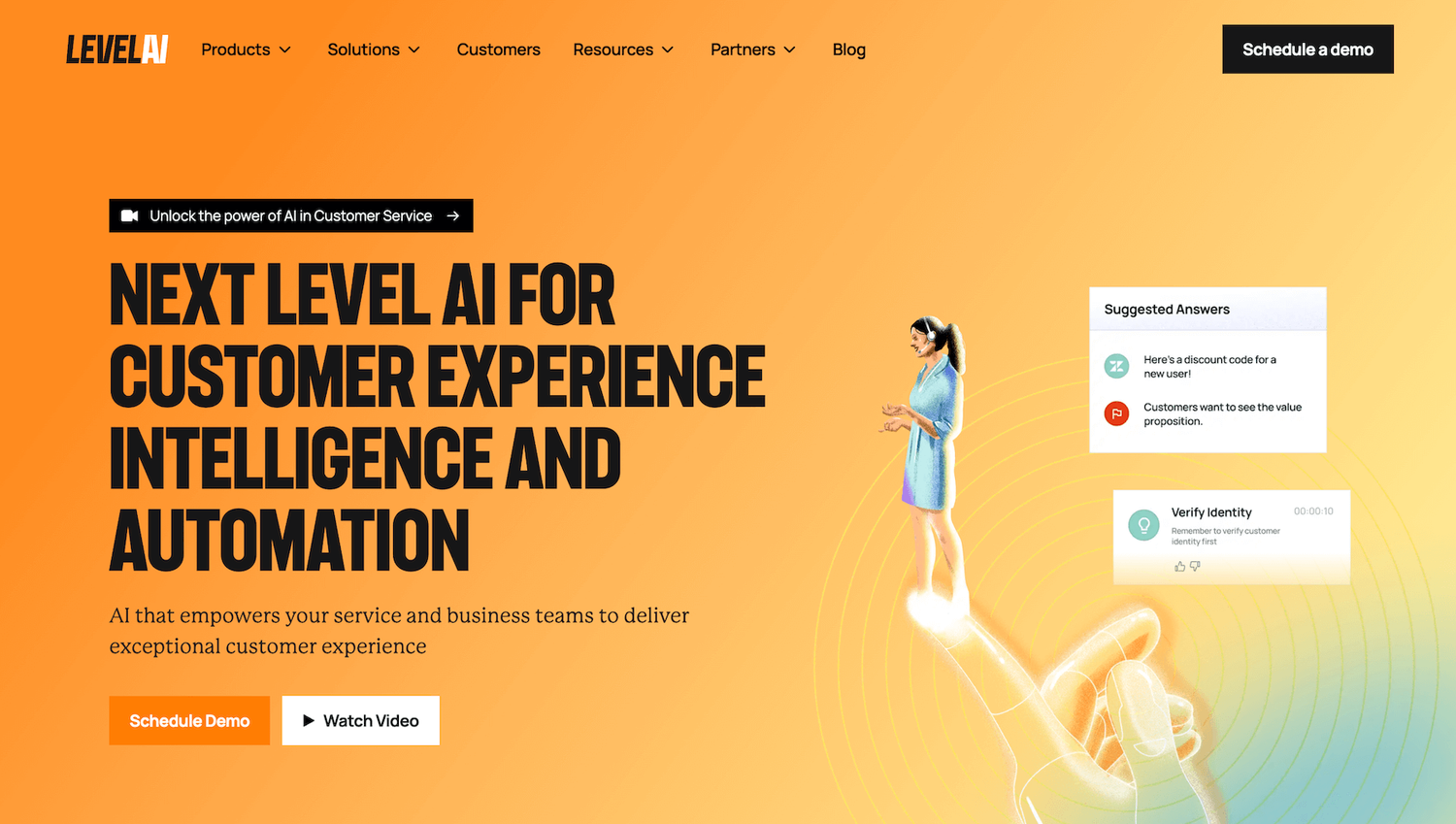
Level AI is automation software for QA teams that understand the deeper meaning of language within the context of an entire conversation (as opposed to keyword-based systems that identify specific phrases in isolation). We call this conversational intelligence, and it helps businesses uncover valuable insights, improve quality management processes, and elevate the overall customer experience.
Here’s how we designed Level AI to automate parts of your quality assurance workflows so you can focus on higher-value tasks that improve overall customer service and drive continuous improvement within your organization:
Understanding Intent Through Semantic Recognition
Many AQM systems still rely on keywords to understand the content of support interactions. While detecting the presence of keywords in conversation has its uses, it’s not an ideal way to capture the full context and nuances of human language. Keywords can miss subtle variations in phrasing, tone, and intent, leading to incomplete or inaccurate assessments of customer interactions.
For example, given a statement by a customer who’s frustrated with a login issue, “The system doesn’t recognize my email address,” a keyword-based system might entirely miss such a statement, unless you’ve foreseen such a scenario and specifically added keywords targeting this.
A keyword system requires you to add tens or even hundreds of keywords around potential scenarios in advance to ensure the software identifies as many occurrences of these scenarios as possible.
Level AI leverages semantic intelligence and natural language understanding to accurately recognize such expressed intents — even those that are worded wildly differently — without the need to predefine all possible phrases and keywords in advance.
Our scenario engine identifies phrases that hint at a certain intent (or “scenario” as we call it), and applies conversation tags to these — like Greeting, Hold, or Language Barrier — highlighting these intents throughout the conversation.
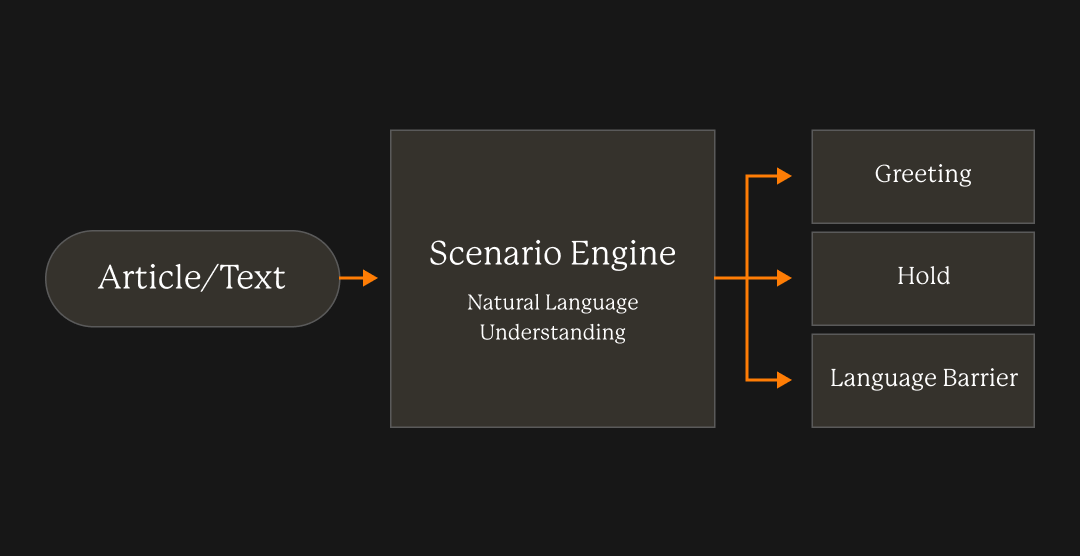
These scenarios remain tagged and accessible, so that you can go back and review conversations where, for instance, customers had login issues.
Conversation tags are searchable and filterable, allowing you to create curated lists of conversations where certain intents were expressed:
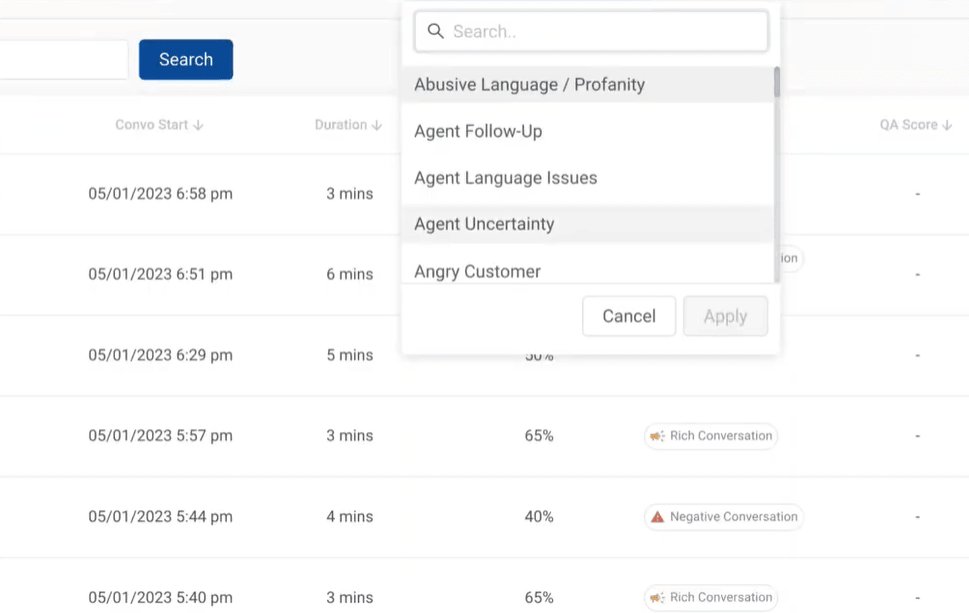
As previously suggested, each scenario can have multiple conversation tags associated with it. In fact, you define scenarios that are relevant to your business and train each scenario with example phrases, as shown here:
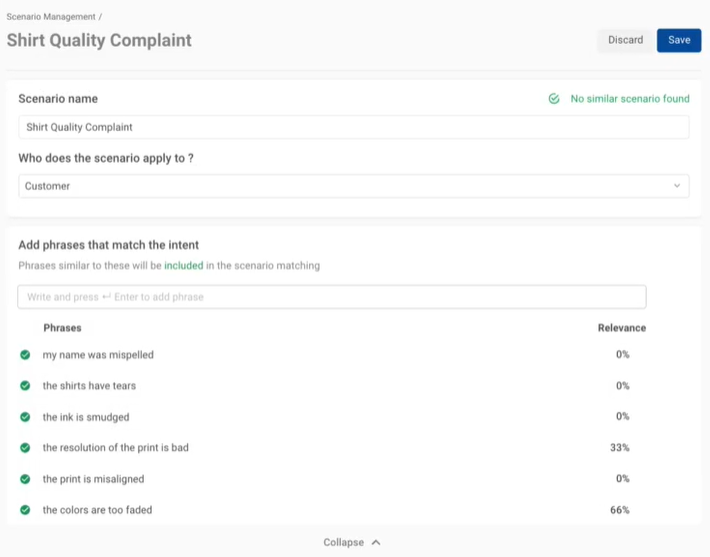
In contrast to other systems that similarly let you set up scenarios, however, we use a semantic intelligence model that understands the meaning behind words and captures their variations.
To further fine tune the AI, we also show you “near-miss” phrases from similar conversations in the past that almost match the intent, which you can add or reject.
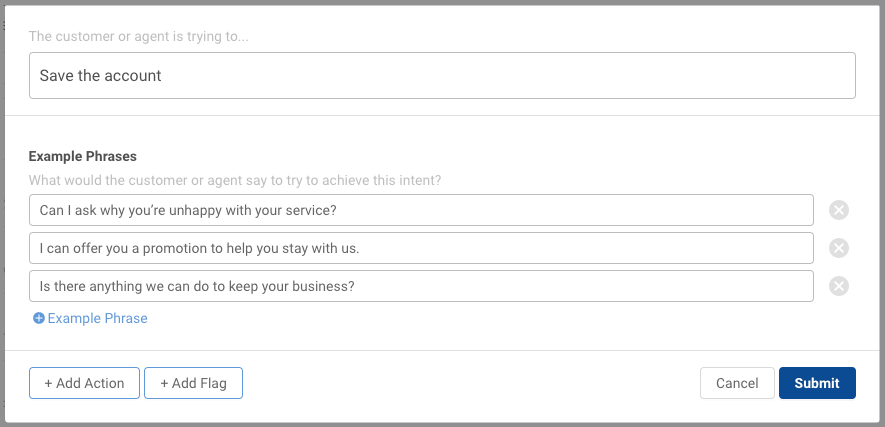
Sentiment Analysis to Gauge Customer Feelings
Using technology to gauge the emotional undertones of conversations has always been challenging but our AQM software can discern emotions beyond simply being broadly positive or negative.
We identify, tag, and label specific phrases in any customer interaction — uttered by either agent or customer — as denoting a certain sentiment. We refer to these as sentiment tags.
Level AI currently recognizes the following sentiment tags:
- Anger
- Disapproval
- Disappointment
- Worry
- Happiness
- Admiration
- Gratitude
Examples of expressions of disappointment, as indicated by sentiment tags, are shown below:
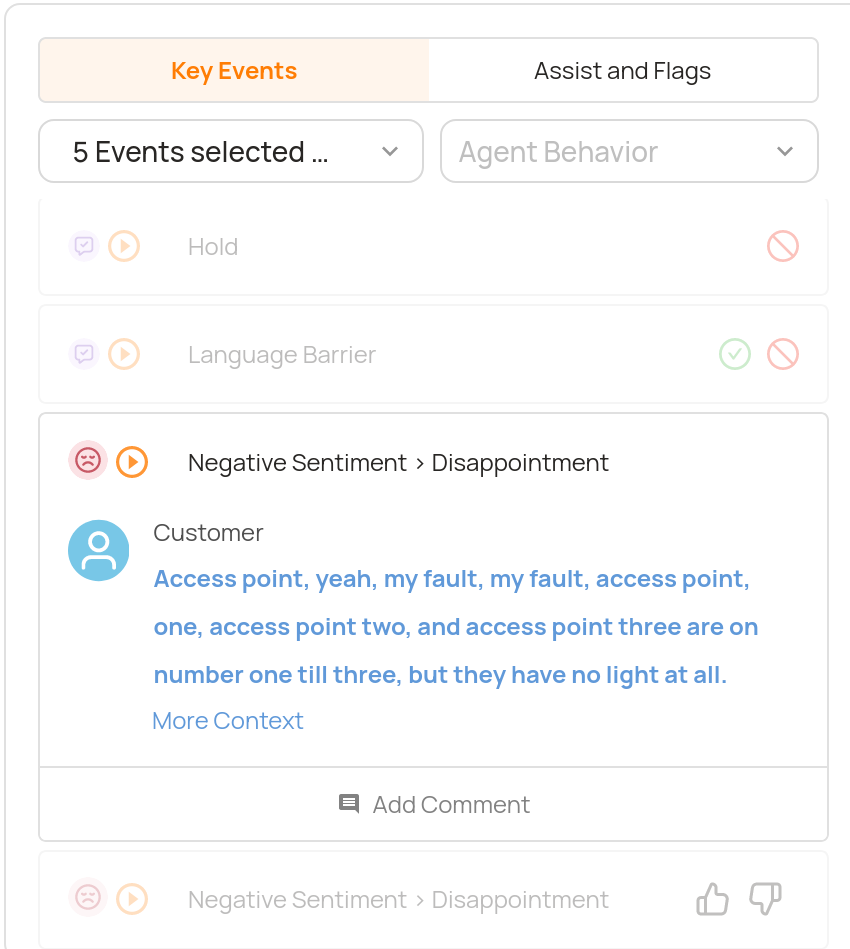
Sentiment tags are particularly useful for reporting, since they’re searchable and filterable (like conversation tags) and allow you to report on all instances where customers were disappointed.
Besides identifying the emotions occurring inside a conversation, our solution also analyzes the overall feeling of an interaction. It does this by adding up the individually expressed sentiments according to when they occur, assigning a global sentiment score from 0 to 10 — with 0 being strongly negative and 10 being strongly positive.
This score isn’t a simple average but a weighted calculation that gives more importance to certain parts of the conversation, ensuring a more accurate reflection of the customer's overall experience:

You’ll notice that the conversation on the left has a lower sentiment score than the one on the right, although the customer expressed happiness at one point during both. This is because we put greater emphasis on sentiments expressed later in the call, since these were expressed after a potential resolution.
For example, if a customer calls frustrated about being overcharged and the agent corrects the bill and offers a small credit as compensation, any satisfaction expressed after the resolution indicates a successful outcome, regardless of the initial frustration.
However, if the customer is angry at the end of a call, this suggests they’re not happy with the agent or with the resolution.
Both these features (sentiment tags and the AI sentiment score) allow you to accurately measure and track the emotions of your customers to yield better insights into their behavior, which helps you provide better responses and proactively solve recurring issues.
Automated Quality Scoring and Feedback
Automated quality scoring and feedback assess how well customer service agents are performing. InstaScore, our auto scoring tool, rates how agents handle calls or chats and scores them based on predefined rubrics to give you immediate feedback on their performance.
InstaScore is expressed as a percentage and provides a quick overview of how well the system assesses an agent's performance according to a given rubric, such as:
- Did the agent greet the customer appropriately?
- Did the agent clarify and confirm the customer's concerns?
- Did the agent follow proper procedures to resolve the issue?
- Did the agent thank the customer for calling and offer further assistance?
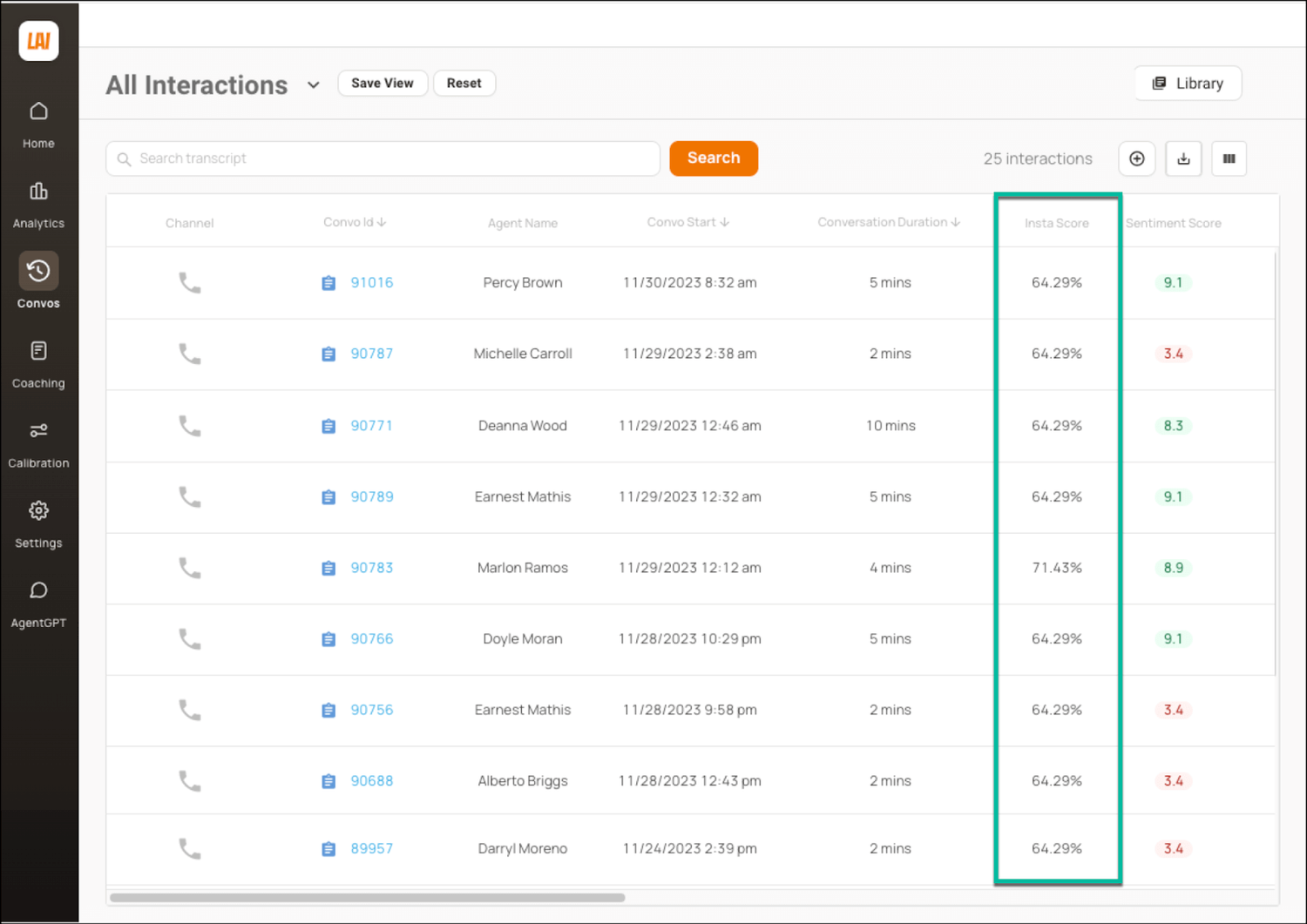
In essence, InstaScore allows you to automatically score all customer interactions to identify those that require further scrutiny. This auto-scoring feature streamlines your workflows and automates time-consuming aspects of quality management, which would typically involve listening to entire calls.
Lastly, InstaScore is also useful for continuous improvement, as giving customer reps access to this data lets them evaluate their own performance and improve where needed.
Automatic Call Dispositioning
Our semantic engine identifies the topics and issues discussed during interactions and automatically assigns relevant categories and subcategories to each.
This is helpful since agents often struggle with dispositioning right after a conversation due to post-call fatigue or inaccurate category descriptions.
Level AI creates its own categories after analyzing calls, but you can also create your own by providing a few example phrases, similar to creating your own scenarios.
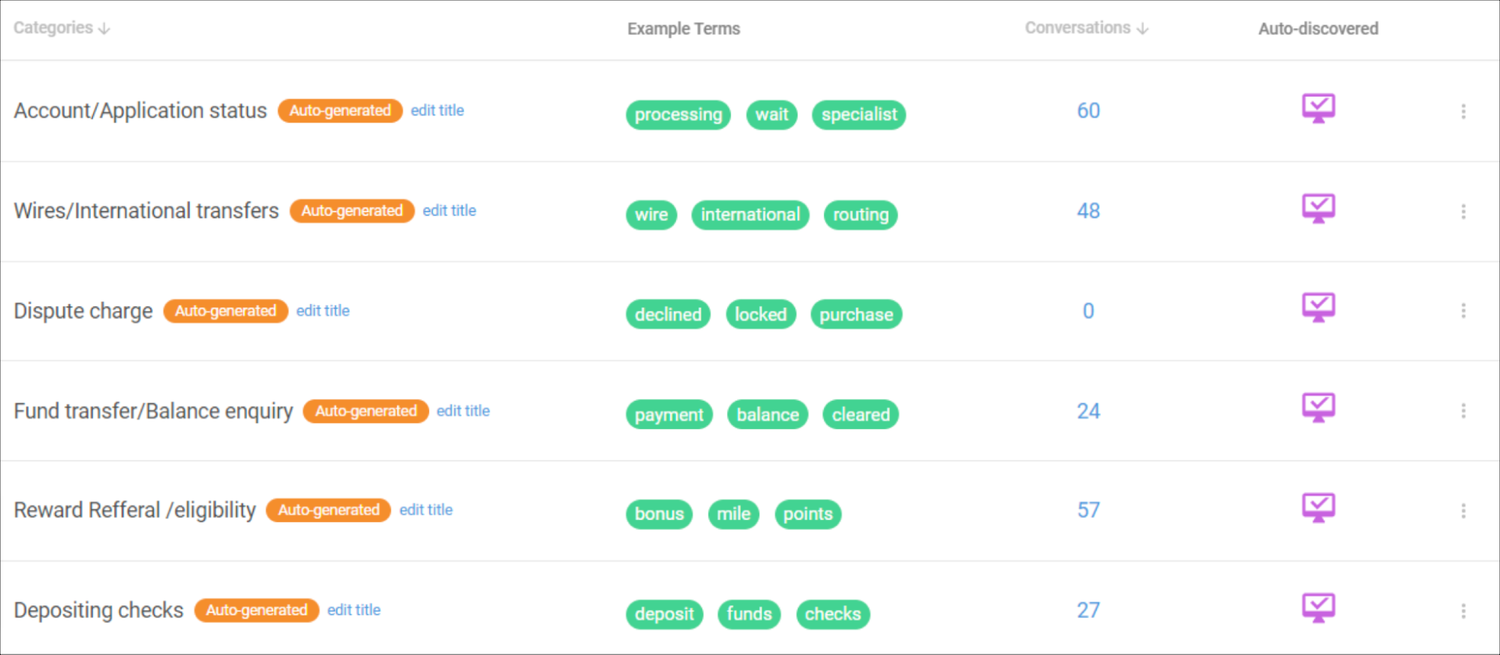
Once an interaction is categorized, you’ll see the assigned category and subcategory in the conversation dashboard on the upper right-hand side:
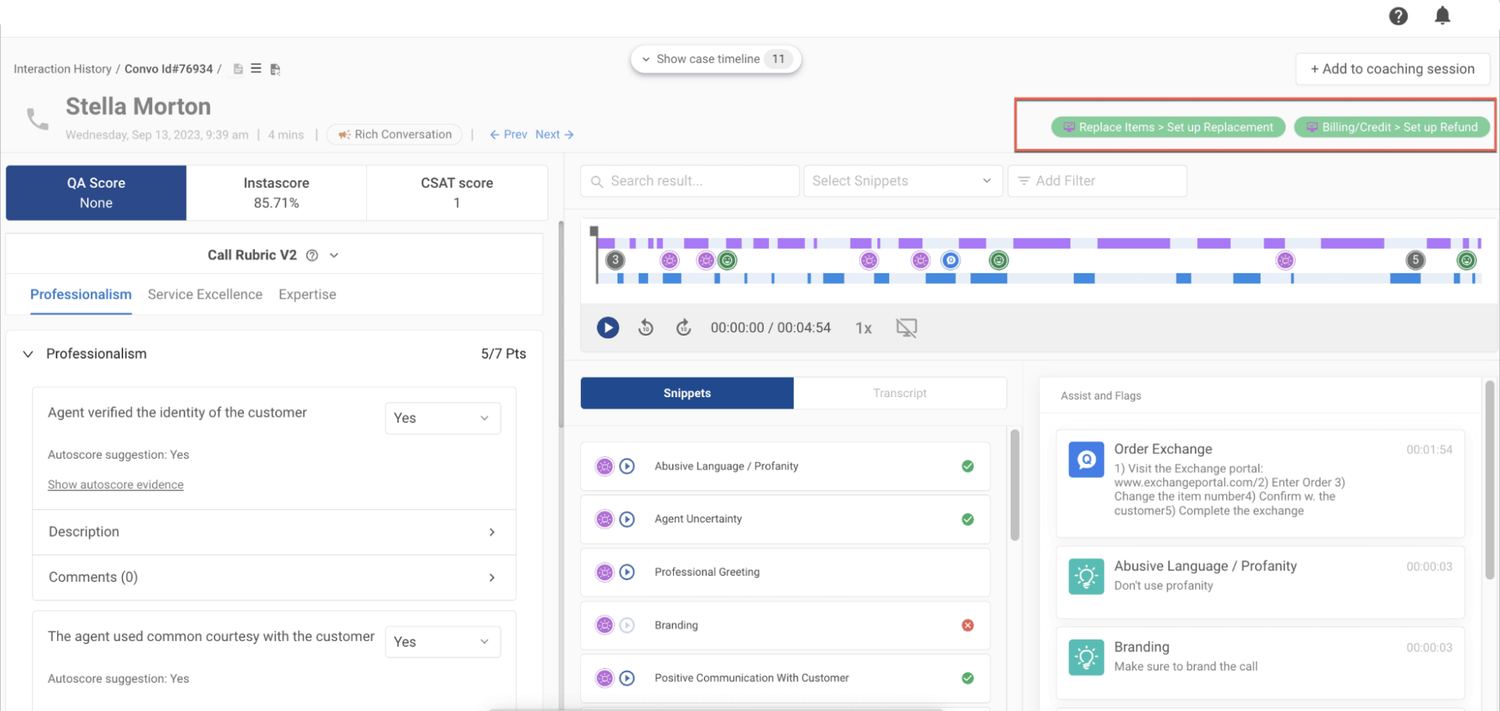
Instant Evaluations for Continuous Improvement
Another aspect of QA is listening to calls to identify specific characteristics like requiring help from other agents or supervisors, having a longer-than-expected duration, or containing certain negative metrics.
This is one reason why some QA activities can be time-consuming. To address this, we offer coaching tools like InstaReview, which analyzes conversations and automatically flags those exhibiting negative characteristics.
Our platform allows you to easily search for and find conversations that have been InstaReviewed for closer scrutiny and training purposes.
We flag such conversations using color-coded tags:

Highlighting interactions in this way saves you time and effort from having to sample based on simple metrics like duration. Not only does InstaReview analyze all conversations, but it also processes more specific metrics like number of assists.
InstaReview tags can also serve as important reporting dimensions, and are searchable and filterable.
In addition to InstaReview, our platform offers dedicated Coaching dashboards, where you can identify key areas for agent improvement, track their progress over time, and provide targeted feedback:
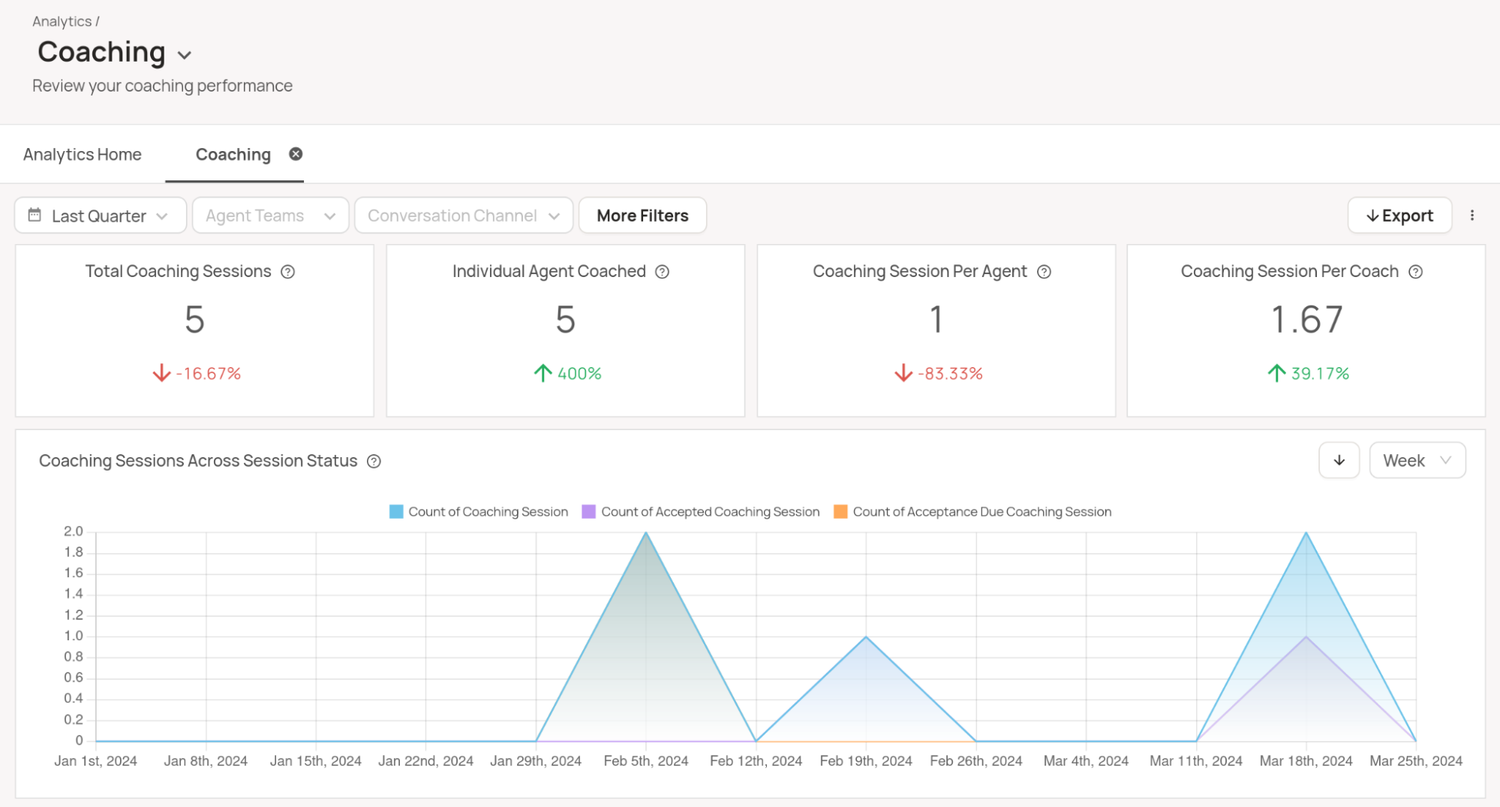
Voice of the Customer (VoC) Insights
Traditional VoC methods and data focus on specific metrics like CSAT, NPS, and customer effort, often gathered via post-interaction surveys. These surveys typically suffer from low response rates and inherent human biases.
Level AI analyzes the meanings behind all conversations to derive such metrics, without the need for surveys. It also identifies patterns and trends across all interactions that you might not have been aware of.
Examples of such patterns include a certain percentage of issues revolving around “Shipping delays” and “Warranty claim submissions.”
Even though customers express issues differently, Level AI recognizes trends and expresses these in standardized, descriptive ways.
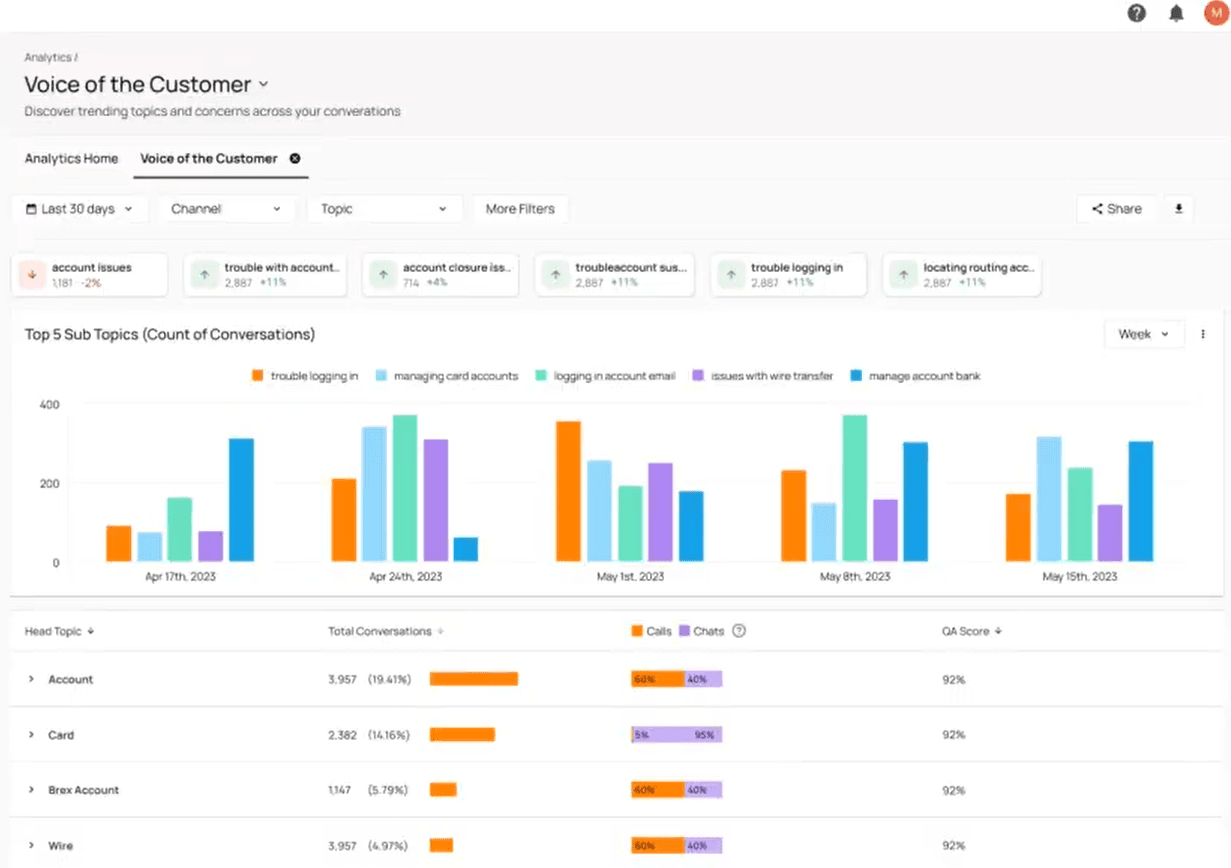
This not only saves you the effort of manually compiling VoC data, but provides an accurate, unbiased view of customer sentiment. Furthermore, it can reveal unforeseen issues, like product defects, that you may not have previously detected.
Comprehensive Reporting and Analytics
Our platform allows you to mix and match data from many different sources in order to find answers to questions like:
- What common issues lead to repeat calls from the same customers?
- What specific phrases or words spoken by agents are associated with high customer satisfaction scores?
- Are there any recurring issues that significantly affect first-call resolution rates?
- How do service issues differ between peak and off-peak hours?
- How does agent response time impact overall customer sentiment?
Level AI’s flexible reporting allows you to integrate data from disparate sources (e.g., your CRM, knowledge base, QA and survey tools) into cohesive analytics dashboards that provide unified views about your customers and your operations.
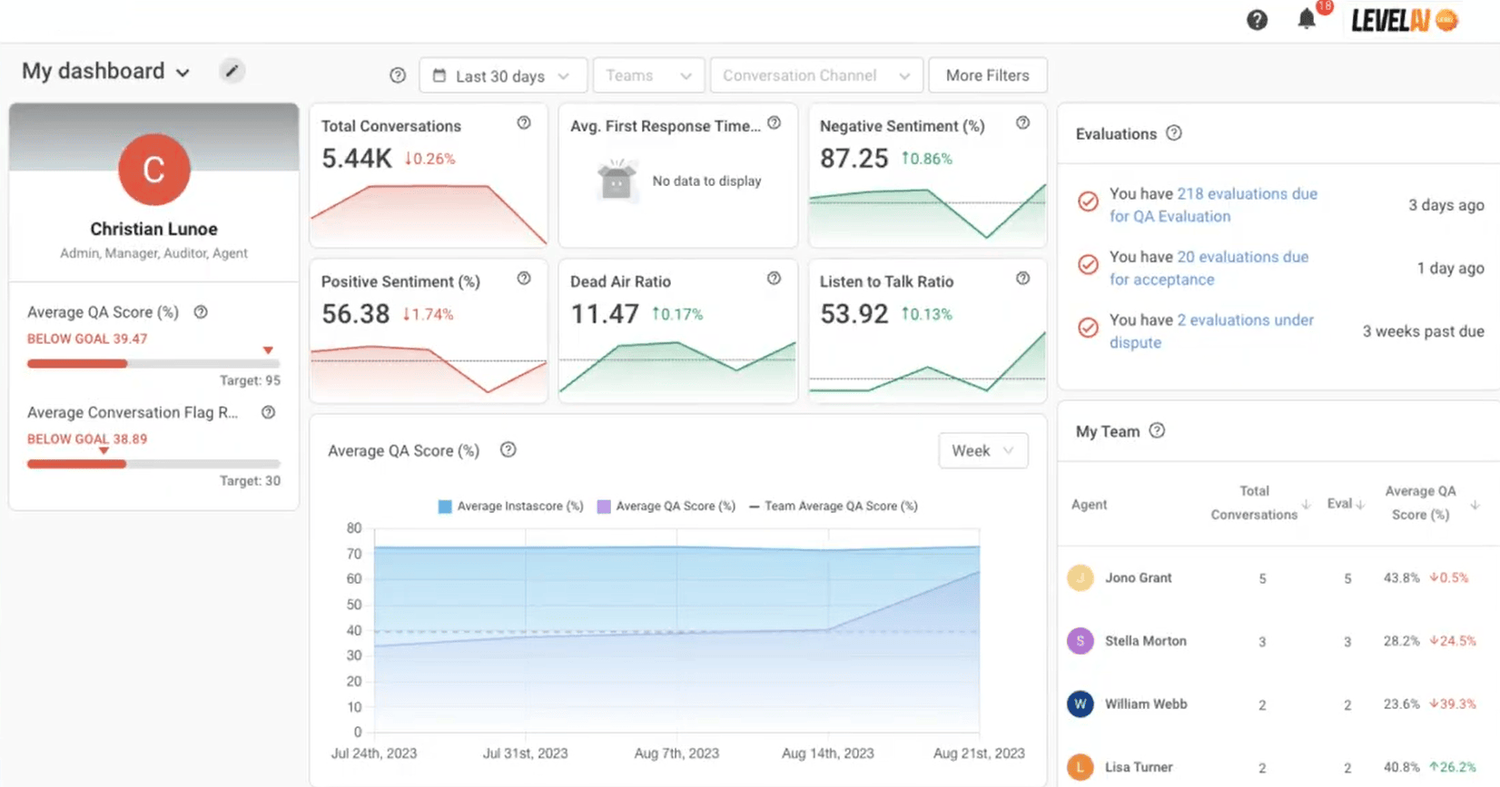
Our Query Builder enables you to create charts and dashboards with spreadsheet-like features, such as conditional and measurement operators.
You can also filter data using conversation tags and sentiment tags, among others.
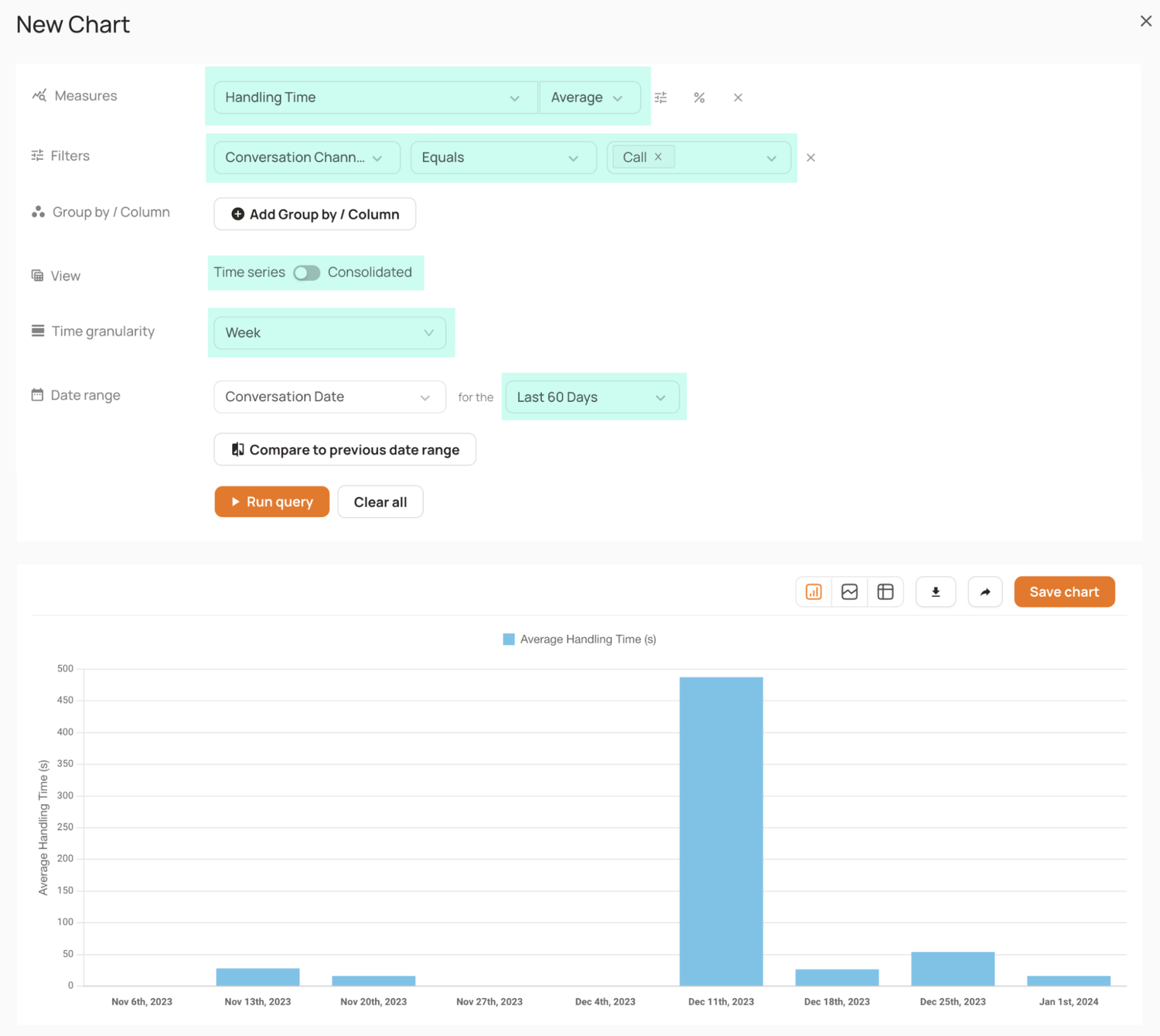
Once created, you can specify who has access to reporting, and share reports with others via email. Level AI’s roles and permissions functionality means you can give users certain rights to the platform and independently give them access to specific sets of data — so managers can fully access the platform but only see data relevant to their team or group.
Getting Started with Level AI
Level AI helps you scale your quality management workflows by analyzing more calls with the same staff and resources. It auto-scores interactions to reveal gaps in customer service and operational efficiency.
Book a free demo to see how automated quality management can provide your team with deep insights into customer interactions.
2. Verint
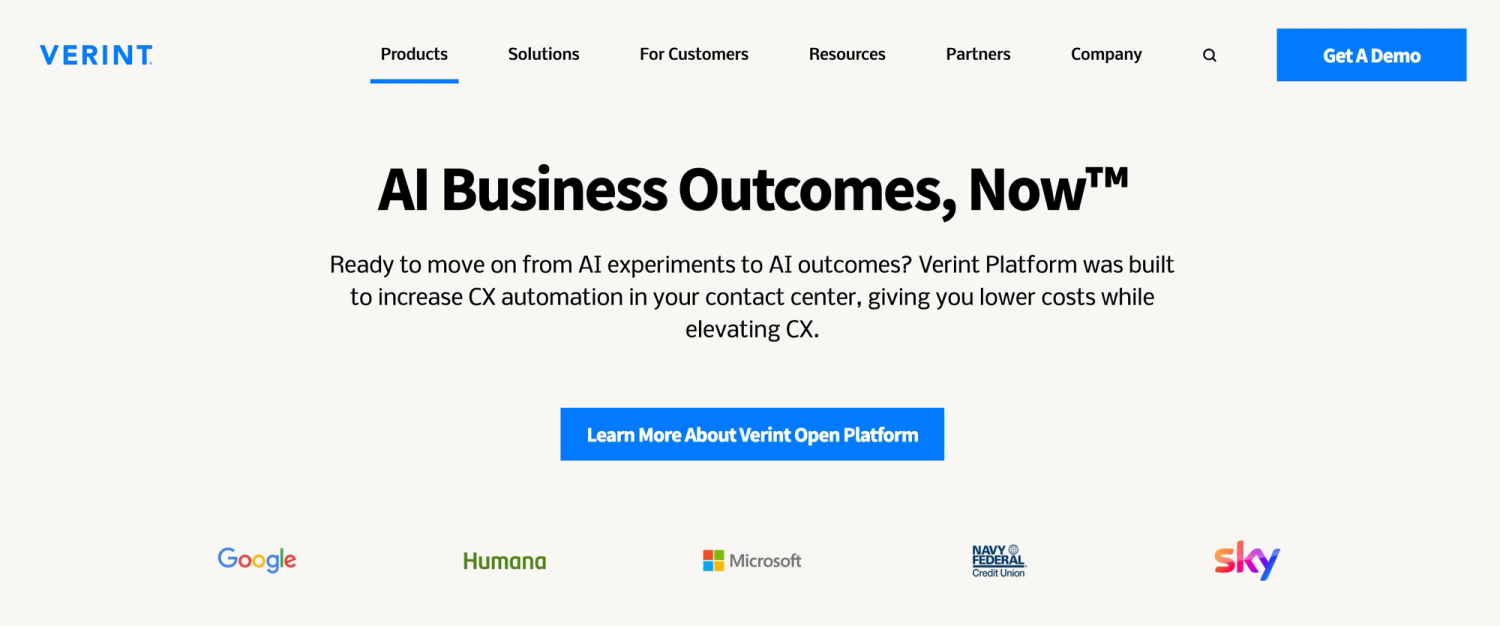
Verint is an analytics company that produces customer experience automation software for large enterprises and banks. They offer a suite of AI-powered bots for analyzing and auto-scoring customer interactions.
Features
Verint’s AQM platform features three types of quality bots:
- Quality Template Bot — Uses generative AI to help you set up scoring rules by learning from your rubrics and previously provided examples.
- Performance Scoring Bot — Auto scores your customer interactions according to your scoring rules and auto assigns coaching based on a particular agent’s KPIs.
- Compliance Scoring Bot — Evaluates your customer interactions for adherence to internal and external policies.
Pricing
Verint doesn’t disclose pricing on their website; contact their team for a custom quote.
3. Observe.AI
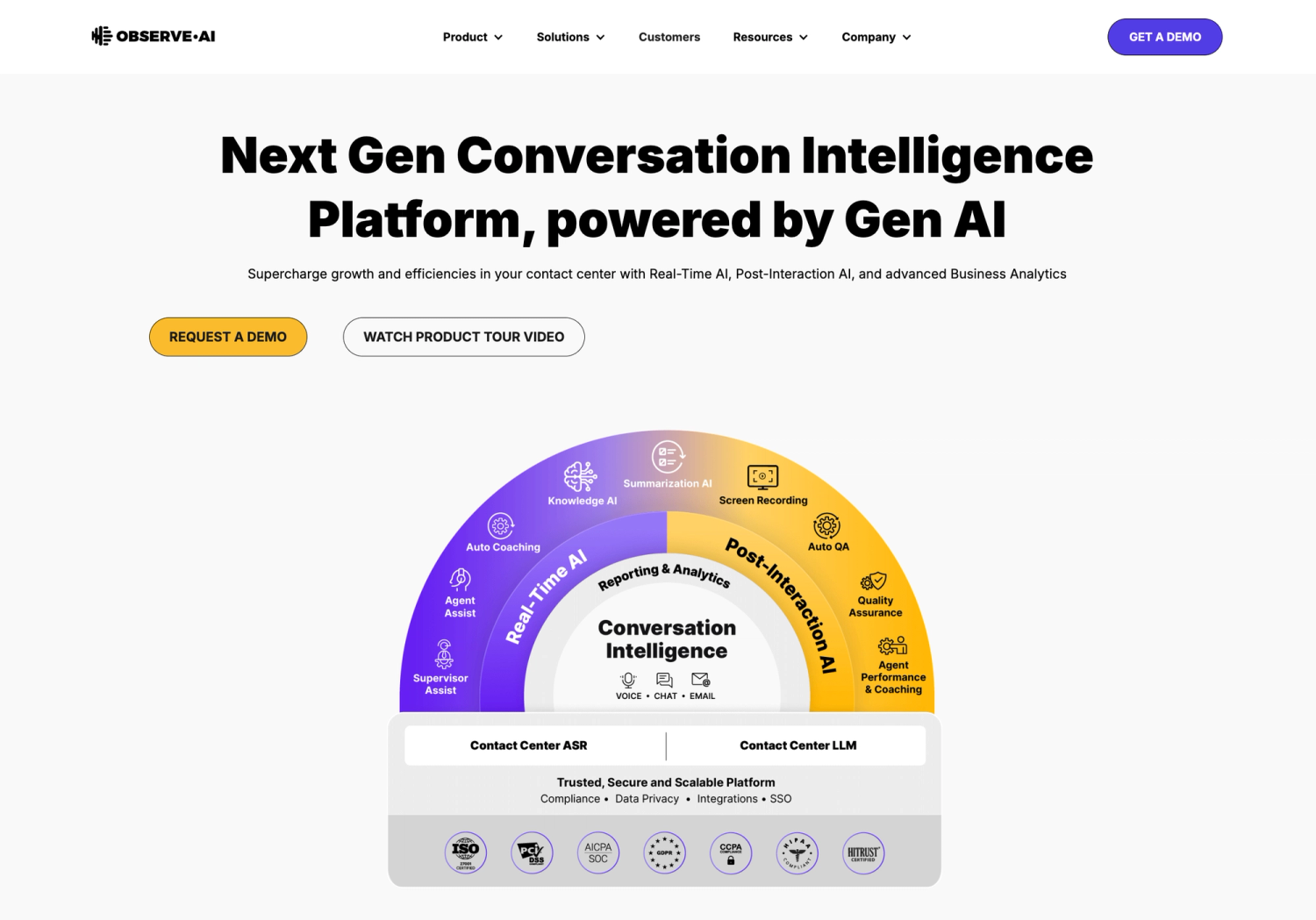
Observe.AI provides automated quality management software for contact centers, which they refer to as Auto QA. They give contact centers visibility into all customer conversations to provide management with high-level awareness of what’s going on.
Features
Observe.AI’s auto QA features provide:
- Customer Interaction Analysis: AI analyzes 100% of customer interactions to boost revenue, enhance the customer experience, and reduce compliance risk.
- Agent Coaching: Builds personalized coaching plans using performance insights and scales personalized coaching.
- Automation Rules: Generative artificial intelligence creates flexible metadata, automation rules, and advanced conditions to improve business decisions.
Pricing
Observe.AI doesn't list pricing on their website. You must book a demo for a quote.
4. Zendesk
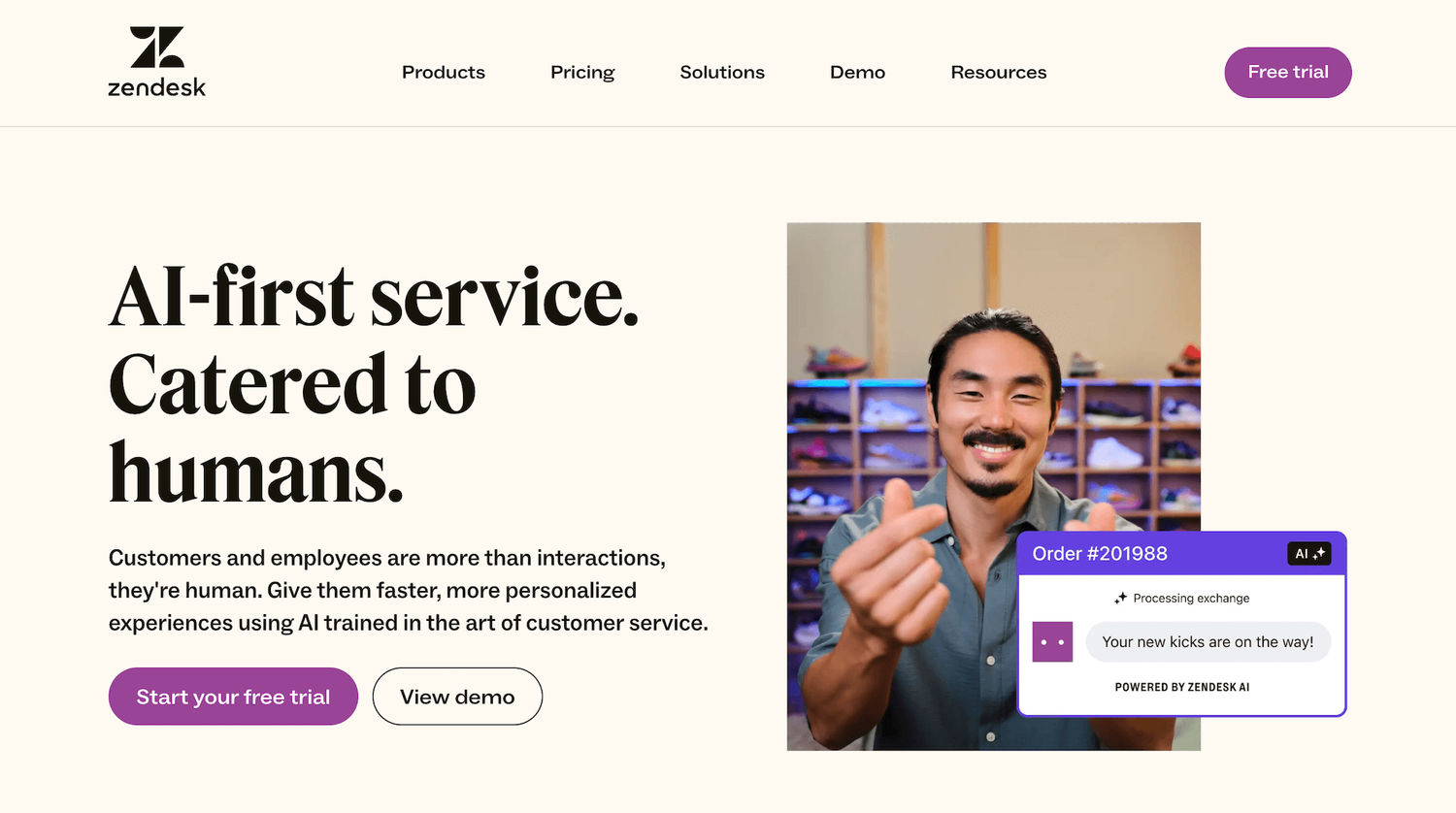
Zendesk is a quality management software solution for contact centers that offers a suite of different products around customer service, such as a CRM, a ticketing system, a database, a sales module, and more.
For customer service QA, the company purchased Klaus, which was a provider of AI-powered automated quality management system software. Today this is known as Zendesk QA.
Features
Zendesk QA:
- Comprehensive Conversation Analysis: Highlights gaps in customer service and identifies coaching opportunities for agents.
- Internal Quality Reviews: Tracks quality at the agent, team, and company levels.
- Survey Design Assistance: Helps create surveys for collecting VoC data.
- Sentiment Analysis: Determines whether customer sentiment is positive or negative.
- Customizable Scorecards: Allows you to build scorecards tailored to the needs of your business.
Pricing
Zendesk QA’s pricing starts at around $35 per agent per month.
5. Enthu.AI
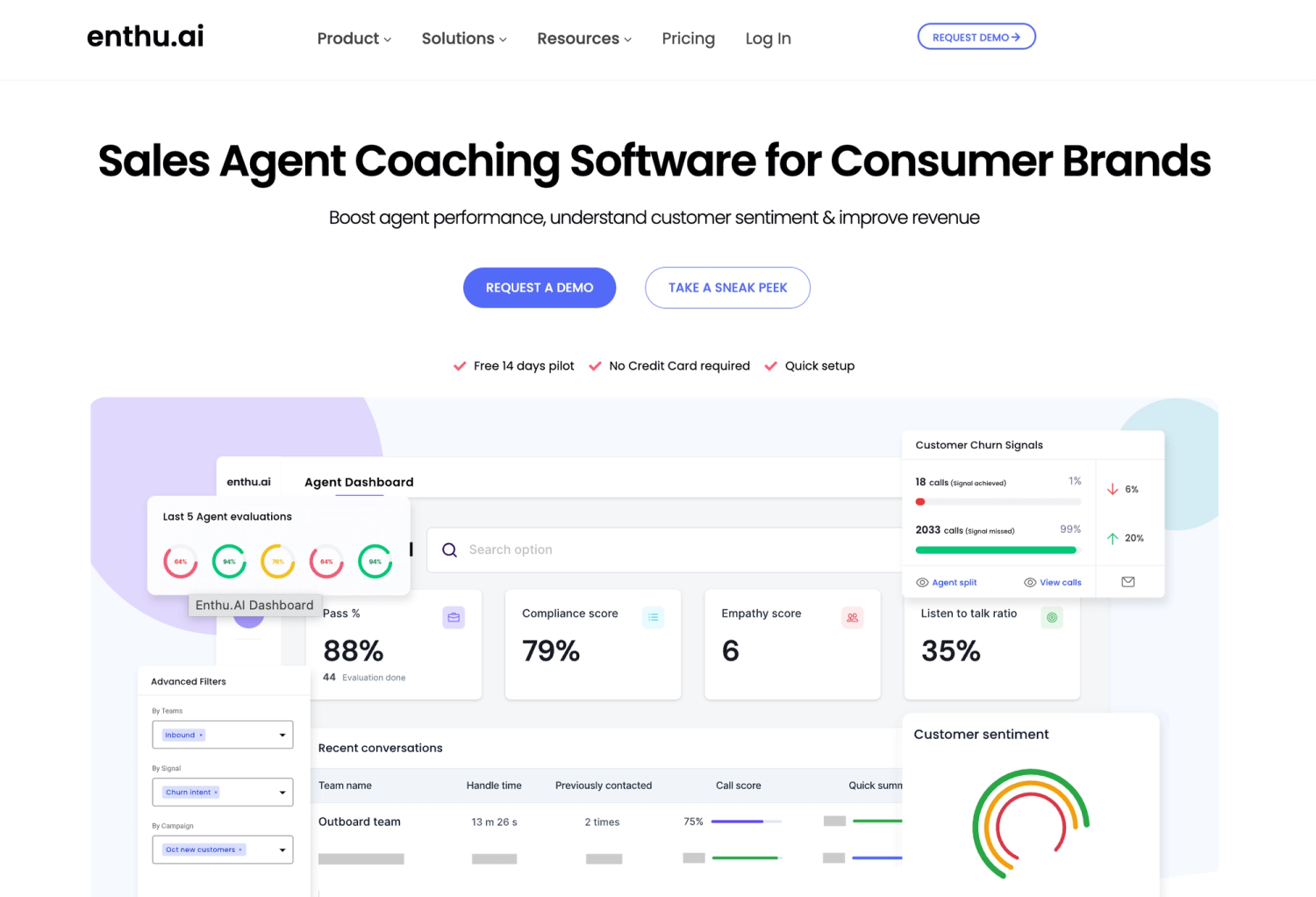
Enthu.AI is primarily a sales coaching tool for customer service representatives but also provides cloud features for automating quality management, including real-time coverage of customer conversations and service quality.
Features
Enthu.AI offers the following AQM functionality:
- Speech-to-Text Transcription: Converts speech to text for analyzing customer conversations in various global English dialects.
- Key Moment Identification: Identifies important moments in calls with a user-friendly interface for detailed analysis.
- Call Filtering: Allows filtering by date, agent, moment, feedback, and more, to create curated lists for better sampling.
- Compliance Rating and Evaluation: Facilitates the rating and evaluation of calls for compliance issues, allowing you to share these ratings with teammates.
Pricing
Enthu.AI doesn’t give out their exact pricing, but according to their website, you pay by number of seats, and whether or not you’re using artificial intelligence features.
Start Automating Quality Assurance with Level AI
Level AI offers:
- 100% auto-scored call center quality to ensure every conversation is scored consistently, eliminating the inefficiencies and biases of manual QA.
- Auto-reviews of agent performance to quickly and accurately highlight gaps and coachable opportunities.
- Automatic intent recognition using natural language understanding and semantic intelligence to tag contextually relevant conversational moments.
- VoC insights that are generated from conversations, not surveys, to reveal valuable and non-obvious customer feelings.
- Flexible speech analytics and reporting tools for a unified view of agent performance and customer feedback.
To get the full benefits of Level AI and scale up your contact center operations, schedule a free demo with our team.
Keep reading
View all

